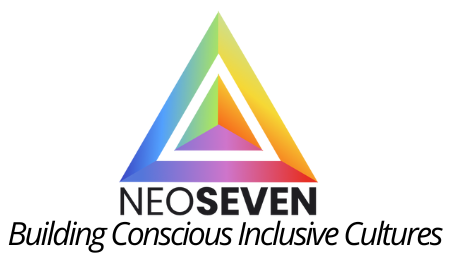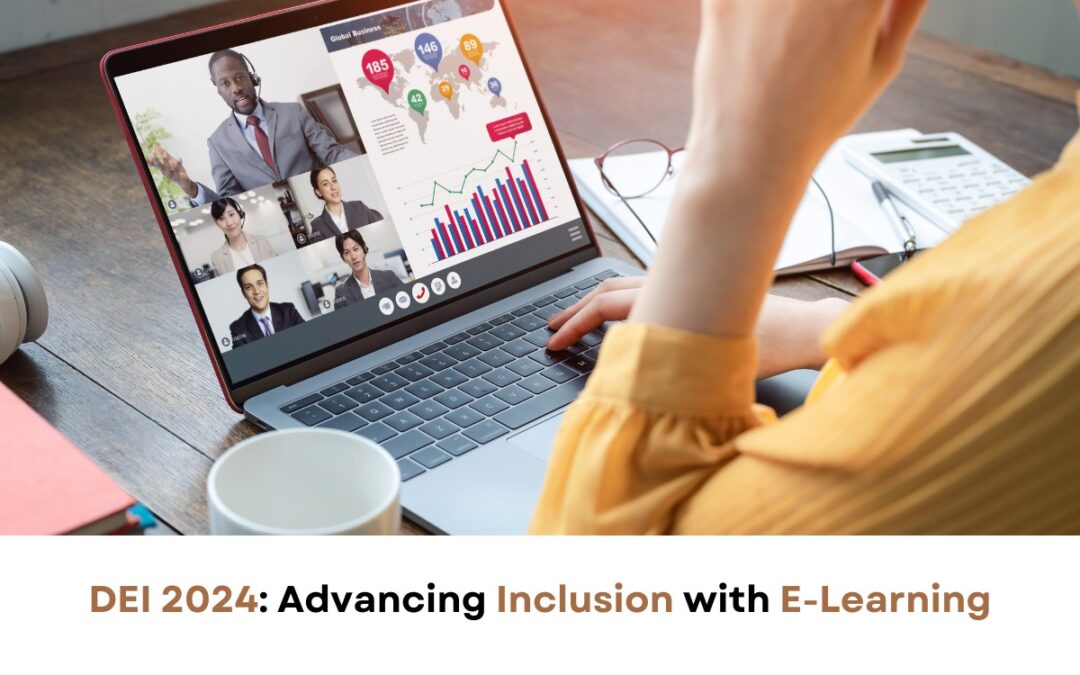DEI Insights 2024: A Year in Reflection
As 2024 draws to a close, we’re taking stock of a year full of significant discussions and initiatives centered around Diversity, Equity, and Inclusion (DEI). These terms are fundamental to how companies develop, change, and assist their employees.
DEI has taken center stage for the past few years, and the conversation has moved beyond addressing unconscious bias to now establishing safe environments for individuals with neurodiverse backgrounds. The question isn’t if DEI matters – it’s how organizations can make a real, lasting change.
Let’s now explore some of the most important DEI issues of 2024 and how you could address them at work.
Practicing DEI Remotely: Making Inclusion Work from Anywhere!
The way we interact with each other has changed significantly over the years and more so with technology making remote work possible for many. Although it provides freedom, it also raises a significant question – how can teams feel included while they’re miles apart?
Here’s what works:
- Flexibility Is Inclusion: For many, remote work is a lifeline – employees able to take care of their family, or manage health conditions, or work in environments that suit them.
- Digital Learning: Using e-learning platforms ensures that DEI trainings are accessible to everyone around different time zones.
Psychological Safety: Creating Space for Honest Conversations
A workplace thrives when employees feel they can speak up, take risks, and share ideas without fear. That’s what psychological safety is all about.
How to build it:
- Train Leaders: Equip managers with tools to recognize and address power imbalance.
- Equalize Communication: Employees should know their opinions matter – regular feedback channels can help build trust.
Psychological safety in teams is the foundation for creativity and collaboration and it also helps enhance belonging at the workplace.
Neurodiversity: Embracing Differences as Strengths
1 in 5 adults is neurodiverse, yet many organizations miss the opportunity to fully include them. By accommodating conditions like ADHD, autism, and dyslexia, organizations may unlock potential of numerous incredible talent and boost creativity.
You may consider:
- Offer workplace adjustments like quiet spaces or flexible hours.
- Partner with DEI consulting firms to provide neurodiversity training that educates teams and challenges stereotypes.
Inclusive Leadership: Setting the Standard
Inclusive leadership is beyond having the right policies – it’s about embodying the right behaviors and actions, literally walking the talk. It starts at the top, leaders role model and enable integrating DEI into daily operations. Inclusive leadership programs are highly effective and help bridge the gap of becoming an inclusive leader.
What makes a leader inclusive:
- Empathy: Listening to understand, not just to respond.
- Authenticity: Leading with honesty and transparency.
- Accountability: Being human, acknowledging mistakes, and making changes.
Observance Days: Learning Through Recognition
Observance days – such as the Black History Month or International Women’s Day – aren’t just moments to celebrate; they’re opportunities to educate and connect.
Ideas for engagement:
- Host workshops by collaborating with Experts and DEI consulting firms.
- Highlight stories and the significance of these days on your company website.
The Role of Allyship: Taking Action, Not Just Standing By.
Allyship means speaking up and stepping in. It’s about being intentional in your actions to support those who need it.
How to practice allyship:
- Grow your network: Be friends with people who are not like you and be genuinely interested in their stories and wellbeing.
- Learn Continuously: Be curious, educate yourself about others’ experiences.
- Act Intentionally: Don’t just be a bystander – stand up when you notice bias, microaggressions, stereotypes, or any form of injustice.
- Build Bridges: Use your privilege to create opportunities for others.
Addressing Unconscious Bias: A Hard but Necessary Step
We all have biases – it is only human to have unconscious biases. Being aware of our biases and being conscious of our actions helps mitigate these biases. So make sure you attend a sensitization program on unconscious bias and learn the steps to help mitigate biases’ impact in your daily actions.
What you can do:
- Use tools to draft gender-neutral job descriptions.
- Provide regular bias training through e-learning platforms or DEI consulting firms.
Empowering Indigenous Voices: Inclusion Beyond the Obvious
Indigenous communities often get overlooked in broader DEI conversations. Recognizing and including their perspectives is essential for meaningful progress.
Actionable steps:
- Support Indigenous entrepreneurs through mentorship and grants.
- Include Indigenous voices in training sessions to educate and build awareness.
Looking Ahead to 2025: Building a Better DEI Foundation
DEI isn’t a one-time project – it is a journey and a long-term commitment. As 2025 approaches, here’s how organizations can step up:
- Start with E-Learning: Accessible DEI education on e-learning platforms is scalable and effective.
- Measure Progress: Analyze data to see what’s working and what needs adjustment.
- Think Global, Act Local: Collaborate with DEI consulting firms to implement strategies that work both globally and locally.
Why NeoSeven?
NeoSeven Solutions is a premium HR & Business consulting & training firm with a track record of helping Fortune 500s and emerging companies drive actionable results.
We provide solutions for organizations at every stage of their DEI journey across the many strands of diversity – including gender, generations, disability, LGBTQIA+, race, ethnicity, etc.
We have an extensive roster of dynamic experts from across the globe adept at delivering region-specific interventions and workshops in English and 30+ other languages.
Are you prepared to go forward? Check out our e-learning options now.

